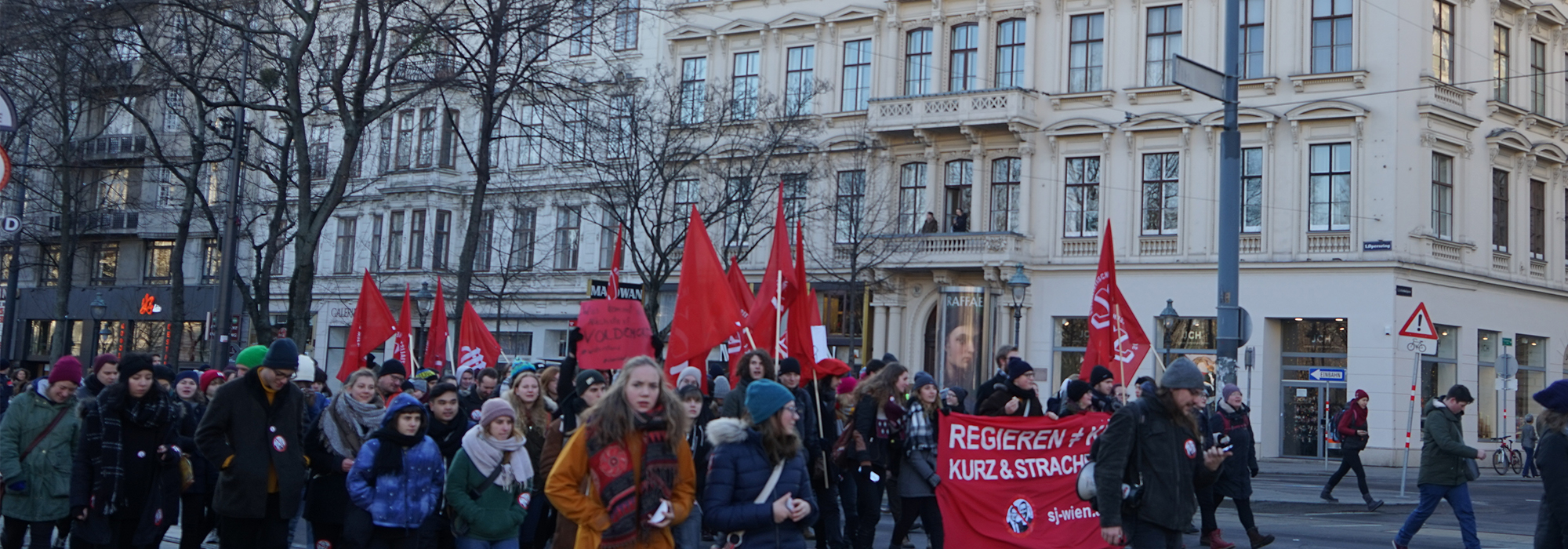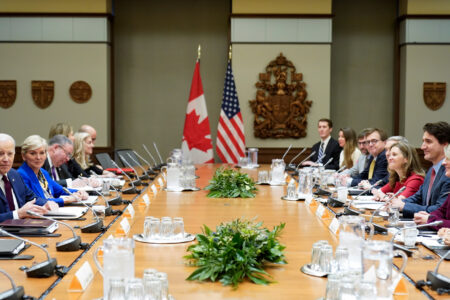
Twenty years ago, on 4 February 2000, Austria’s Freedom Party became perhaps the first far-right party to enter a government in post-Second World War Europe by joining the governing coalition. Outrage and international measures against Austria swiftly followed, from fellow European Union (EU) member states as well as the United States and Israel. However, the response was completely different almost two decades later when the Freedom Party, in 2017, joined another Austrian coalition – news that this time passed nearly unnoticed. What does this apparent tolerance for far-right politics mean for immigration and integration?
It seems today, the far right has become quite normal, if not mainstream, with far-right parties rising in popularity in several European countries. These include France’s Front National and Lega Nord in Italy (now renamed Lega to broaden appeal) but also Vox in Spain and Golden Dawn in Greece – even if the latter seems almost extinct after its disastrous electoral result in the summer 2019 national vote.
One central concern that unites all of these parties is immigration. European far-right parties blame migrants as the source of all problems, from unemployment to crime to the erosion of an “authentic” national culture. They present themselves as the real “patriots” who defend the homeland and the nation from these “invaders.” Attention is usually focused on their anti-immigration agendas with regard to new inflows and asylum seekers, with less interest or concern about their views and policies on integration of existing migrants. The failure of Italy to pass a citizenship reform law, despite seven years of parliamentary debates between 2012 and 2019, demonstrates how the far-right can influence the integration agenda – both while in government and as opposition parties. Increasingly, progressive parties fear losing votes by showing themselves as too “pro-immigrant” or not sufficiently “patriotic.”
Beyond citizenship – which can be seen as a more long-term, constitutional objective – the impact of the rise of nationalist, far-right populism can be felt indirectly, when it comes to welfare rights. A case in point is the recent bill passed in the Greek parliament, which introduced important allowances for families who have a new baby born after January 1, 2020. It requires non-citizen families to prove 12 years of legal residence in the country prior to the baby’s birth. This is indeed incongruent with Greek nationality laws, which require seven years of legal residence before applying for naturalization. It is also a much lengthier residency requirement than the five years needed for a non-EU citizen to apply for EU long-term resident status (the rough equivalent to a Canadian permanent residency).
One wonders whether we are heading toward the mainstreaming of exclusion rather than the mainstreaming of migrant integration, a point that immigration scholars have been analysing. For example, only three years ago, Maurizio Ambrosini from the University of Milan was arguing that European cities were reshaping the national integration landscape by mainstreaming migrant integration. Using research focused on Brussels, Florence, Frankfurt, Genoa, Madrid, Manchester, Marseille and Verona, Ambrosini showed how these cities adopted a variety of strategies to de-ethnicise policies of social protection, such as measures to prevent quitting school early, or measures to address housing problems. Ambrosini showed that the strategies adopted by different cities were often low-key, aiming at low-visibility or adaptive continuity, seemingly to avoid grand, attention-getting statements on multiculturalism or diversity.
Similarly, Ilona van Breugel and Peter Scholten from the Netherlands highlighted how the mainstreaming of social policies in France, the UK and the Netherlands aimed at tackling problems in a holistic manner through, for instance, the “zones prioritaires” in France, or the city citizenship in Amsterdam and Rotterdam in the Netherlands. In these approaches, the focus was on poverty, unemployment, early school-leaving and on socioeconomic features such as parents’ education level, rather than on immigrant or foreign-born status. Van Breugel and Scholten cautioned that such mainstreaming at the municipal level depended significantly on the political will of a given city government and could alter if the government changed and support for migrant communities became less of a priority.
Researchers and policy-makers have emphasised the important role played by a vibrant civil society sector in supporting and implementing migrant integration policies. One wonders, however, what the future holds, given this rising tide of far-right political parties across Europe, a trend that increasingly legitimises both a legislative and a social media campaign against civil society, such as that experienced in Italy in recent years.
Thus, it seems reasonable to ask whether, instead of the mainstreaming of integration, we are facing today the mainstreaming of exclusion in Europe, in the name of an ill-advised “patriotism.” Are we indeed heading toward an impasse? While our societies are becoming increasingly diverse, a new form of “tribal nationalism” is gaining ground, predicated on an “organic” understanding of the nation as homogenous, compact, and with no place for diversity.
This article is part of the Ensuring inclusive prosperity when all boats aren’t being lifted special feature.
Photo: People protest in Vienna, Austria, in December 2017 as the far-right Freedom Party joins the coalition government of Austria. Shutterstock by Inspired By Maps
Do you have something to say about the article you just read? Be part of the Policy Options discussion, and send in your own submission. Here is a link on how to do it. | Souhaitez-vous réagir à cet article ? Joignez-vous aux débats d’Options politiques et soumettez-nous votre texte en suivant ces directives.









